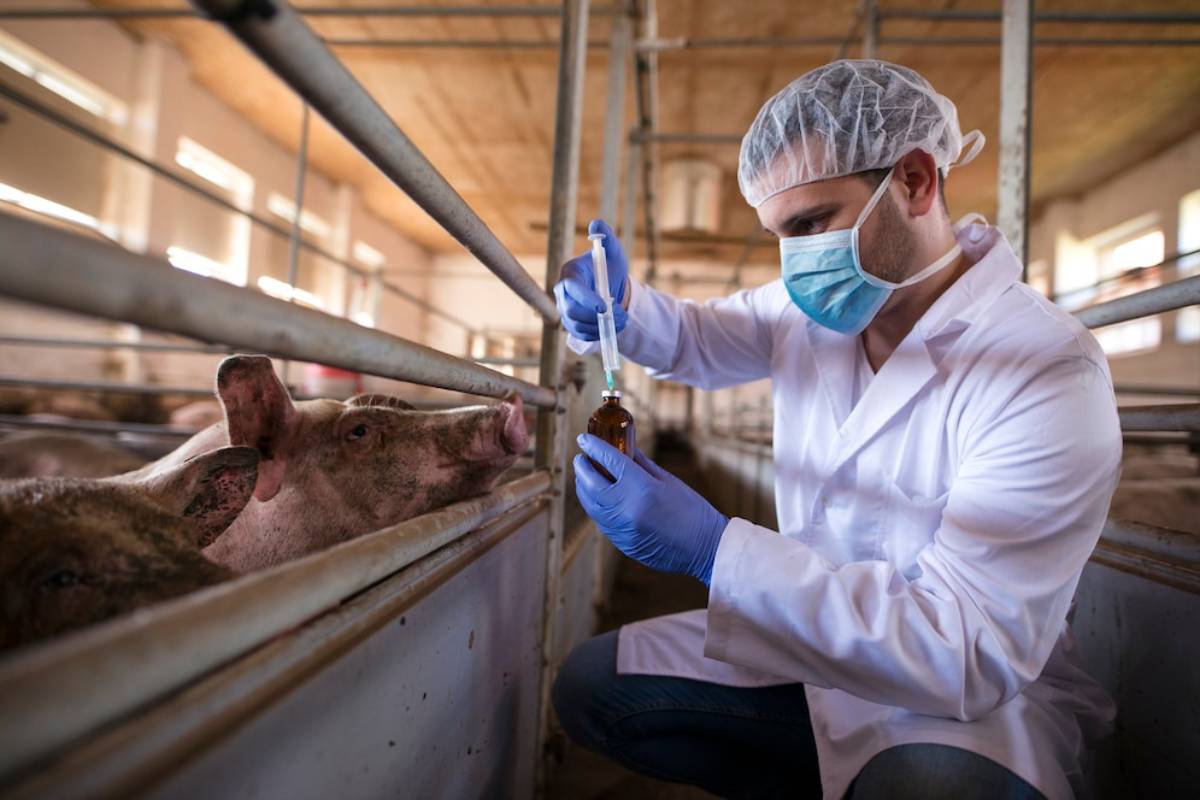
Biotech Startup Trends to Watch in 2025
By 2025, the biotech industry will see big changes. These advancements will reshape healthcare, agriculture, and environmental sustainability. Biotech startups lead this revolution. They drive innovation with new technologies and fresh solutions. In this blog, we will look at key biotech startup trends for 2025. We’ll share insights on how these trends are changing biotech investments and the industry as a whole.
Introduction

The biotech sector is known for its innovation. Startups are key in pushing scientific discoveries into real-world use. As we approach 2025, the pace of innovation shows no signs of slowing down. Biotech startups are using new technologies like artificial intelligence (AI), synthetic biology, and gene editing. They aim to tackle some of the world’s biggest challenges.
This blog will explore the biotech trends expected to lead in 2025. It will provide useful insights for investors, entrepreneurs, and industry fans. Biotech startups are ready to change the future. They can revolutionise personalised medicine and tackle climate change. This will lead to exciting advancements.
Key Benefits / Why It Matters
The significance of biotech startups cannot be overstated. These agile companies are driving science forward. They are also creating new chances for economic growth and benefiting society. This blog talks about trends showing how biotech startups can change healthcare. They can provide personalised medicine. They can also develop sustainable farming methods. Plus, they work to support the environment.
Investors can make smart choices by understanding these trends. This helps them meet future market demands and societal needs. Also, keeping up with these trends gives early adopters a big edge in a fast-changing and competitive field.
Personalised Medicine and Genomics
A thrilling trend in biotech is personalised medicine. This shift is powered by progress in genomics and data analysis. Startups are using large datasets and genomic tools. They aim to create personalised treatments. These treatments consider a person’s genes, environment, and lifestyle. This approach aims to improve treatment effectiveness and lower side effects. It represents a big change from the old one-size-fits-all healthcare model.
The cost of genome sequencing is dropping fast. It has gone from thousands of pounds to under £100 in some cases. So, we can expect many new startups to focus on precision healthcare. These companies create diagnostic tools, predictive models, and targeted therapies. They focus on complex diseases like cancer, heart issues, and rare genetic disorders. Personalised medicine is no longer a futuristic concept—it’s becoming the new standard of care.
Synthetic Biology and Biomanufacturing
Synthetic biology is another area where biotech startups are making significant strides. Startups are building new biological parts, devices, and systems. They also redesign existing components. This work leads to innovative solutions that expand what’s possible in biomanufacturing.
This trend matters a lot for industries like pharmaceuticals, agriculture, textiles, and food production. Companies use engineered organisms to make valuable compounds. These include insulin, vaccines, biofuels, and biodegradable plastics. This method is more sustainable and cost-effective. These advances have great potential and many uses, so they’re attracting more biotech investment.
Startups like Ginkgo Bioworks and Twist Bioscience are creating modular platforms. These platforms enable scalable and programmable biology. Meanwhile, companies like Perfect Day and NotCo are making alternative proteins. They use precision fermentation to replace animal-based products.
AI Integration in Drug Discovery
AI is changing the game in biotech, especially in drug discovery and development. Startups are using AI to analyse large datasets. They find promising drug candidates and can even create molecules from scratch. This drastically reduces the time and cost typically associated with pharmaceutical R&D.
Machine learning platforms can predict how well drugs work. They can also simulate interactions in biological systems and optimise clinical trial protocols. As a result, AI is helping to de-risk drug development and make it more efficient. Investors are watching this area closely. They see the value in startups that combine deep learning and molecular biology.
Green Biotech and Environmental Solutions
Green biotech startups are attracting attention. This shift comes as the world increasingly focuses on climate change and sustainability. These companies use biological methods to tackle environmental issues like pollution, carbon emissions, and waste management.
Biotech startups are doing exciting work. They are engineering microbes to break down plastic waste. They are also creating bio-based alternatives to chemicals made from petroleum. Plus, they are using algae to capture carbon dioxide from the air. Startups in agriculture are developing climate-resilient crops. They are also making biofertilisers to lessen farming’s environmental impact. These innovations help the global sustainability agenda. They also create new business chances for eco-friendly investors and consumers.
Democratisation of Biotech Tools
A new trend is the democratisation of biotech. This comes from affordable, modular lab tools and open-source platforms. Startups are creating portable DNA sequencers, DIY bio kits, and cloud data services. These tools make advanced biotechnology easier for small businesses, schools, and independent researchers.
This movement empowers innovation beyond traditional labs and corporate environments. It also helps build community biolabs and biohacker spaces. Here, citizen scientists can experiment, work together, and support open science. Decentralising biotech tools is boosting the innovation ecosystem. It also lowers entry barriers for new entrepreneurs.
Additional Expert Tips & Common Mistakes to Avoid
Building a Cross-Functional Team
Entrepreneurs and investors should stay informed to take advantage of these trends. They also need to avoid common mistakes. One key piece of advice is to build a strong, cross-functional team. Biotech startups need skills in biology, chemistry, engineering, computer science, and business development. A diverse team boosts problem-solving skills and helps the startup adapt and innovate.
Understanding Regulatory Hurdles
Another frequent mistake is underestimating the complexity of the regulatory environment. Biotech startups face tough safety, efficacy, and ethical standards, especially with clinical products. Engaging with regulatory consultants early is key. Understanding approval pathways like MHRA (UK), EMA (Europe), and FDA (US) helps speed up development. This approach can also prevent costly delays.
Failing to Protect IP
Failure to develop a solid intellectual property (IP) strategy is another common misstep. Without strong patent protection, startups may lose their edge and face copycat risks. Investors are often wary of startups without defensible IP. Founders should talk to patent attorneys early. They should also think about international IP filings if they plan to grow globally.
Advanced Insights / Expert Recommendations
Embrace Strategic Collaborations
To gain a competitive edge, biotech startups should embrace collaboration. Working with universities, hospitals, biotech firms, and public health agencies offers valuable resources, expert knowledge, and chances for pilot testing. Many successful biotech companies come from incubators or research institutions. These places provide mentorship and funding.
Prepare for Long-Term Investment Cycles
Biotech ventures need more time than software startups. They take longer for product development, getting regulatory approvals, and entering the market. Investors need to adopt a patient capital approach. Founders need to build business models that ensure operations run smoothly over time. Funding rounds tied to milestones and grants, like Innovate UK or Horizon Europe, keep progress steady and lower financial risk.
Foster a Culture of Scientific Integrity
In an industry rooted in science, credibility is everything. Biotech startups should focus on clear research practices. They should publish peer-reviewed studies when they can. Also, they need to confirm their findings with independent trials. This builds trust with stakeholders and boosts the startup’s reputation in science and beyond.
Conclusion: Shaping the Future of Innovation

As we look ahead to 2025, the biotech startup landscape is teeming with possibilities. Innovations in this field, such as personalised medicine and AI drug discovery, seek to change industries. They also promise to enhance lives worldwide. Sustainable agriculture and climate tech are part of this change, too.
However, seizing these opportunities requires more than scientific brilliance. It requires smart planning, understanding of rules, teamwork across fields, and a focus on creating lasting value. Entrepreneurs should watch for market changes. Investors need to look past quick profits. Stakeholders must unite to support responsible and ethical biotech innovation.
Are you ready to be part of this exciting transformation? Whether you’re a scientist, investor, policymaker, or curious observer, now is the time to engage with the biotech revolution. The challenges are significant—but so too are the rewards.


